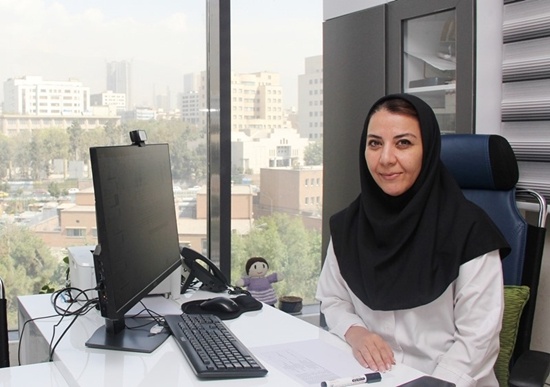A database of Iranian professors specializing in medical and paramedical sciences working at the top 100 universities in North America has been launched

Dr. Yaghmaei stated: “With the establishment of the Iran-North America Scientific Cooperation Room four years ago, and based on my experience of a research sabbatical in the United States and personal interest in international work and networking, the initial steps to create this database were taken.”
She mentioned that the initial idea for setting up a database of Iranian professors specializing in medical and paramedical sciences working at the top 100 universities began with the launch of the online program “How I Treat” under the Appraise to Raise project. He stated: “The research sabbatical in the United States facilitated connections with a network of renowned Iranian professors working in the fields of cancer and oncology. This opportunity was utilized to launch the ‘How I Treat’ program, resulting in 13 sessions on hematologic malignancies with the participation of 13 Iranian professors residing in the United States.”
The Secretary of the Iran-North America Scientific Cooperation Room emphasized: “The collaboration was not limited to Tehran University of Medical Sciences. Based on the connections formed during the promotion of these programs, we selected the session moderators from oncologists across the country, and I also participated as a facilitator in the programs.
She added: “Gradually, ‘How I Treat’ was expanded to other groups, and since the speakers were among the best in the world and we had many international audiences, these programs were also very well received domestically.”
Dr. Yaghmaei considered the creation of a strong communication bridge between professors of specialized and subspecialized fields, residents, and students within the country and specialists in various fields in the United States as one of the most important achievements of holding these programs. She stated: “This interaction made it possible to receive consultations from these renowned specialists in the treatment of specific diseases. Additionally, holding these programs facilitated communication with the head of the American Hematology Board and subsequently led to the launch of the Board Review program and the implementation of three sessions of it with significant participation from international audiences and participants in the fields of hematology and radiology.”
The Secretary of the Iran-North America Scientific Cooperation Office continued: “Considering that the audience of the ‘How I Treat’ programs were doctors and students related to the medical field, and based on the requests made, two programs, ‘How I Care’ and ‘How I Discover,’ were defined for nursing and basic sciences groups, and six online sessions in five categories have been held under them so far.”
She added that holding these programs expanded our network with Iranian professors in the medical sciences field working in North America. He said: “During consultative meetings with Dr. Seyed Nasrollah Tabatabaei Shafiee, Vice Chancellor for International Affairs of the School of Advanced Medical Technologies, and Dr. Navid Moghaddam, a professor in the field of sports medicine, various strategies for utilizing the formed network were examined, and eventually, the establishment of the mentioned database was initiated.”
Dr. Yaghmaei added: “To make maximum use of the capacity of Iranian professors present in the United States, we extracted the top 100 universities in this country from international ranking systems and, with the cooperation of several experts from the International Relations Management of the Vice Chancellor for International Affairs, gathered the names of professors, contact information, resume links, specialized or subspecialized fields, and their university or hospital of activity.”
The Secretary of the Iran-North America Scientific Cooperation Office stated: “Additionally, with the help of Dr. Amir Reza Radmard and Dr. Shirzad Nasiri, members of the Cooperation Office, a list of Iranian radiologists and surgeons in the United States was added to the collected information.”
She noted that the database of Iranian professors specializing in medical and paramedical sciences working in the top 100 universities in North America has been completed and is ready for use. She said: “So far, information on about 1,100 Iranian professors has been collected in this database.”
Dr. Yaghmaei announced the possibility for professors and students to utilize this database and added: “The mentioned database is available to the International Relations Management of the university, and interested professors and students can use this capacity for scientific programs in defined formats (How I Treat, How I Care, How I Discover, and Case Presentation Conference), conducting joint research projects, publishing joint articles, holding online and in-person international congresses and conferences, and implementing online educational programs.”
The Secretary of the Iran-North America Scientific Cooperation Office emphasized: “With the cooperation of the International Relations Management of the Vice Chancellor for International Affairs, we are planning to establish a mechanism for reviewing the desired or proposed programs of the units in collaboration with Iranian professors and specialists present in the United States.”
She reminded: “With this mechanism in place, comprehensive information about the mentioned database and the methods of cooperation will soon be communicated to the university’s subordinate units through correspondence.”

Your Comment :